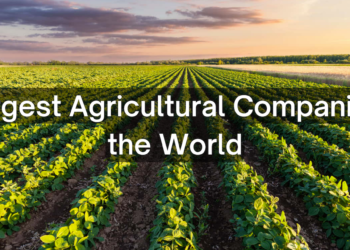This article discusses the crucial role of livestock in sustainable agriculture and explores how to manage a successful animal husbandry operation. It highlights the importance of livestock in improving soil fertility, providing nutrient-rich food, and contributing to rural economies.
Additionally, the article offers practical insights into animal husbandry best practices, including selecting the right breed, housing, feeding, and health management.
Livestock farming is an essential component of agriculture, and it has been practiced for thousands of years. Today, the livestock industry is facing numerous challenges such as climate change, environmental degradation, and food security issues.
However, there is a growing realization that livestock farming can be an integral part of sustainable agriculture, provided that it is managed appropriately.
In this article, we will explore the vital role of livestock in sustainable agriculture and offer insights into how to manage a successful animal husbandry operation. We will delve into the benefits of livestock farming, including improving soil fertility, providing nutrient-rich food, and supporting rural economies.
We will also provide practical tips on selecting the right breed, housing, feeding, and health management to ensure the success of your animal husbandry operation.
The Benefits of Livestock Farming
Livestock farming offers several benefits, making it a crucial component of sustainable agriculture. One of the significant benefits is that livestock provides a source of nutrient-rich food, including meat, milk, and eggs. These animal products are essential sources of protein, vitamins, and minerals, making them crucial for human nutrition.

In addition to providing food, livestock farming can also improve soil fertility. For instance, when animals graze, their hooves break up compacted soil, allowing water and air to penetrate the soil. Furthermore, animal manure is a rich source of nutrients that can be used to fertilize crops, improving soil quality and productivity.
Livestock farming can also contribute to the local economy, especially in rural areas. The industry provides employment opportunities and generates income for farmers, processors, and traders. In some cases, livestock farming can also lead to the development of value chains, which can create additional business opportunities and support local economic development.
Selecting the Right Breed
Selecting the right breed is critical to the success of your animal husbandry operation. The breed you choose will depend on several factors, including your location, climate, and the purpose of your operation.
For instance, if you are raising cattle for meat, you may choose a breed that is known for its meat quality, such as the Angus or Hereford. On the other hand, if you are raising dairy cows, you may choose a breed known for its milk production, such as the Holstein or Jersey.
Housing
Proper housing is essential for the health and well-being of your animals. The housing should protect animals from harsh weather conditions, provide adequate space, and promote good ventilation. The type of housing you choose will depend on the animal species and the size of your operation.
Feeding
Proper feeding is crucial to the health and productivity of your animals. The diet should be balanced and meet the nutritional requirements of the animals. Additionally, animals should have access to clean water at all times.
Health Management
Good health management is essential to prevent and control diseases in your animal husbandry operation. This includes regular vaccination, parasite control, and proper hygiene practices. It is also crucial to have a veterinarian available to provide medical care and advice when needed.
Breeding and Reproduction
Breeding and reproduction are crucial components of animal husbandry. Proper breeding can improve the genetics of your herd or flock, leading to improved productivity and disease resistance. Additionally, proper reproduction management can lead to increased fertility and reduce the risk of reproductive diseases.
Marketing and Sales
Marketing and sales are critical components of any successful animal husbandry operation. It is essential to identify your target market and develop a marketing strategy that can help you reach potential customers. This includes advertising, promotions, and sales channels. You may also consider developing relationships with processors and retailers to help you sell your products.
Record Keeping and Financial Management
Record-keeping and financial management are essential for tracking the performance of your animal husbandry operation. You should keep detailed records of your production, sales, expenses, and profits. This can help you identify areas where you can improve your operation and make informed decisions.
Environmental Management
Livestock farming can have an impact on the environment, including soil erosion, water pollution, and greenhouse gas emissions. It is essential to manage your operation in a way that minimizes its impact on the environment. This includes proper manure management, conservation practices, and reducing your carbon footprint.
Risk Management
Risk management is critical to the success of any animal husbandry operation. This includes identifying and managing potential risks, such as disease outbreaks, market fluctuations, and natural disasters. You may consider developing a risk management plan that can help you minimize losses and protect your business.
Training and Development

Continuous training and development are essential for staying up-to-date with the latest trends and best practices in animal husbandry. You may consider attending workshops, seminars, and conferences, or joining industry associations to network and learn from other producers.
Conclusion
Livestock farming plays a vital role in sustainable agriculture, providing a source of nutrient-rich food, improving soil fertility, and supporting rural economies. To manage a successful animal husbandry operation, it is crucial to select the right breed, provide proper housing, feeding, and health management, and develop effective marketing and sales strategies.
Additionally, record-keeping, environmental management, risk management, and continuous training and development are essential components of a successful operation. With the right approach and practices, livestock farming can be a profitable and sustainable enterprise that benefits both producers and consumers.









